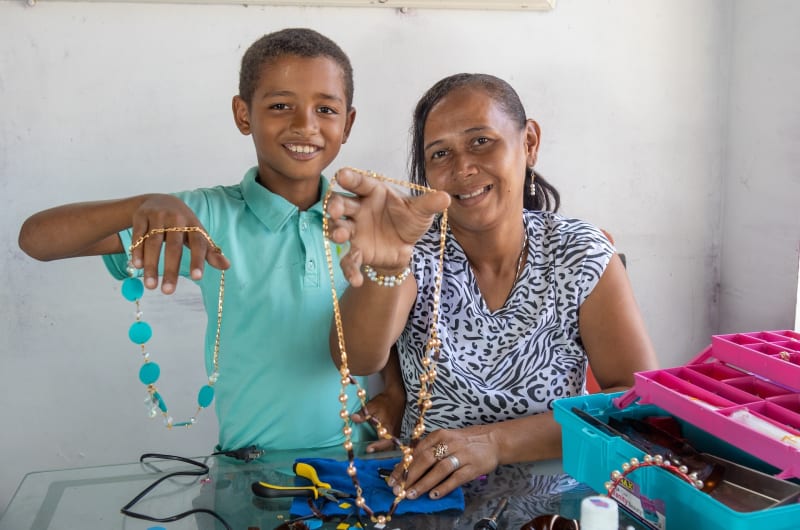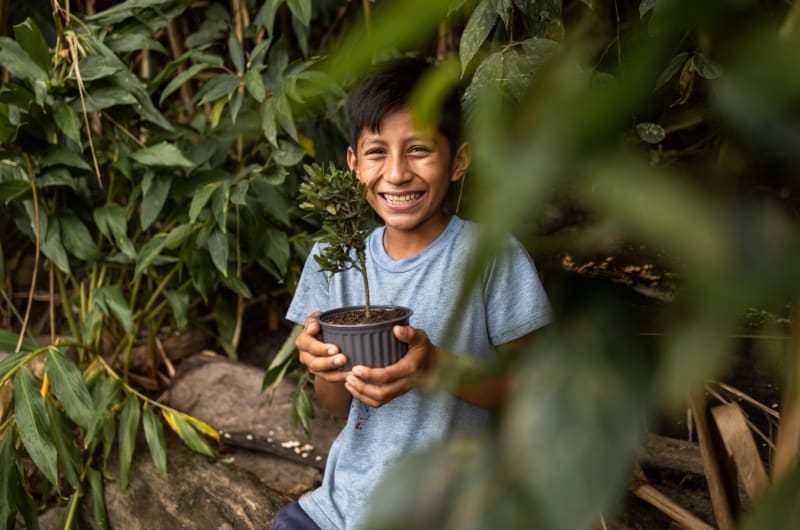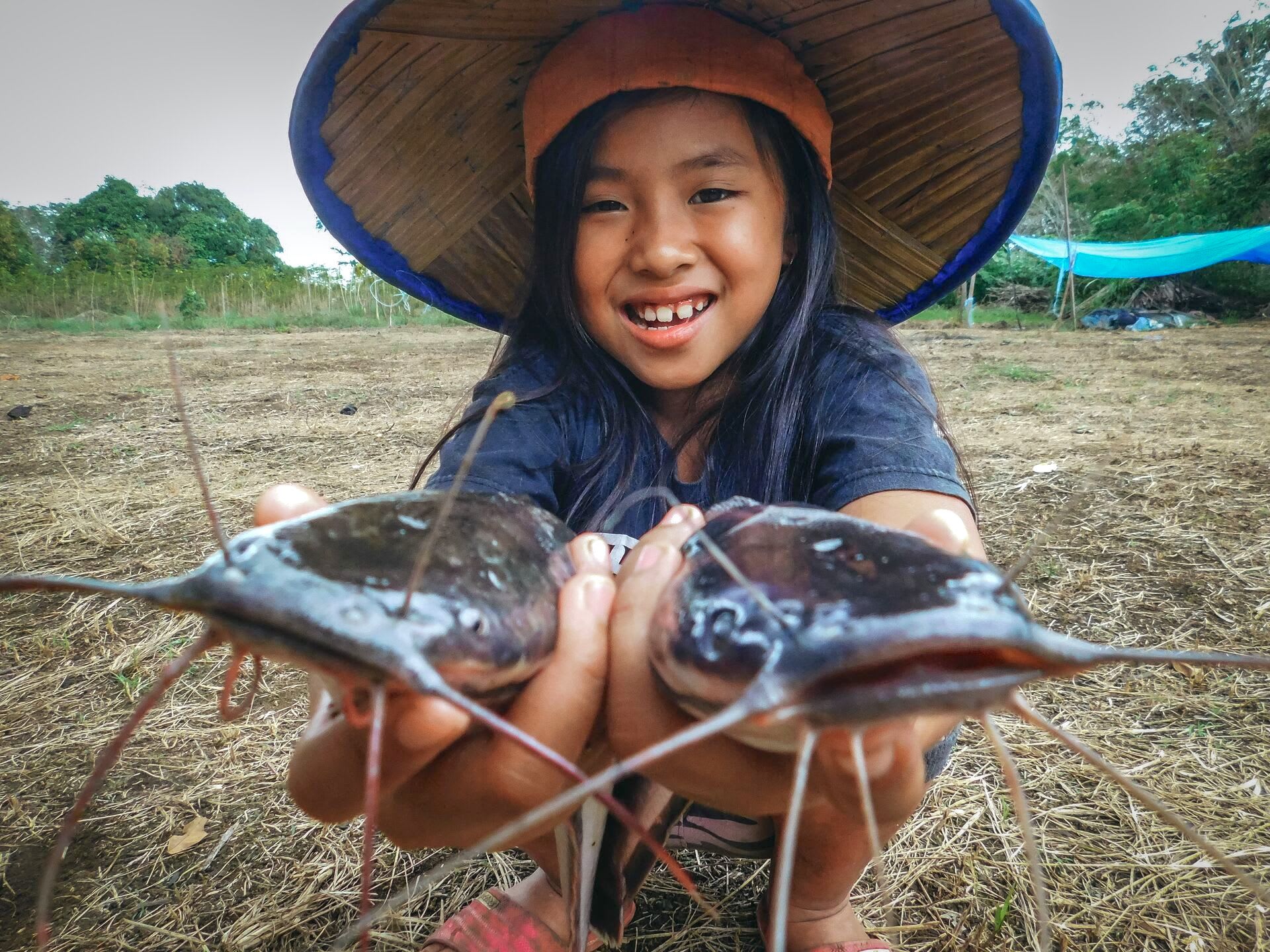
“Every day in the morning and afternoon, I will sit by the pond to feed the fishes and talk to them,” says Meisy.
Meisy is an adventurous nine-year-old from West Kutai, Indonesia, and is the proud owner of a catfish farm in her own backyard.
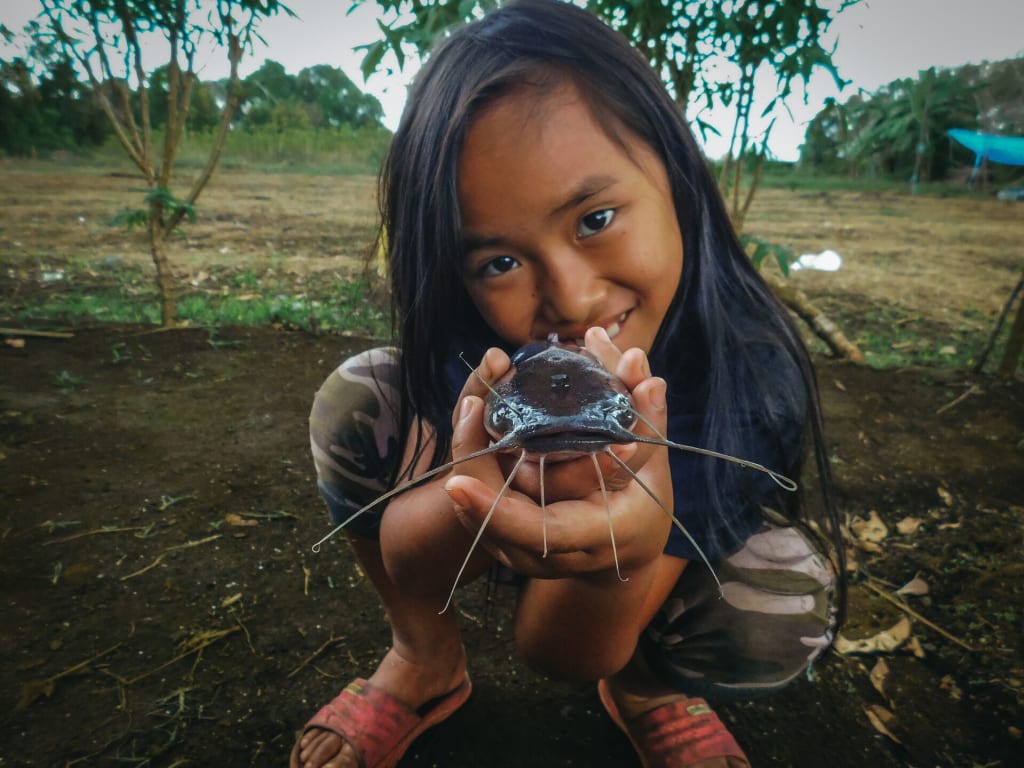
In May of this year, Meisy’s family joined a farming initiative at her Compassion centre—a program designed for parents who have lost their jobs because of COVID-19, providing them with a source of income.
Before the pandemic, Meisy’s parents used to make a living from selling vegetables. But since the quarantine restrictions in March, the family’s income has dropped significantly.
Compassion launches sustainable farming program
After providing food packs to families in need for months, Compassion’s church partner in West Kutai started brainstorming what they could do to make their efforts more sustainable. How could they ensure each family in their care had an ongoing food supply?
Three months later, Meisy’s Compassion centre launched two farming initiatives which would allow families to have long-term, sustainable income: growing vegetables and raising catfish and chicken. Meisy’s family eagerly began their farming adventure with vegetable gardening.
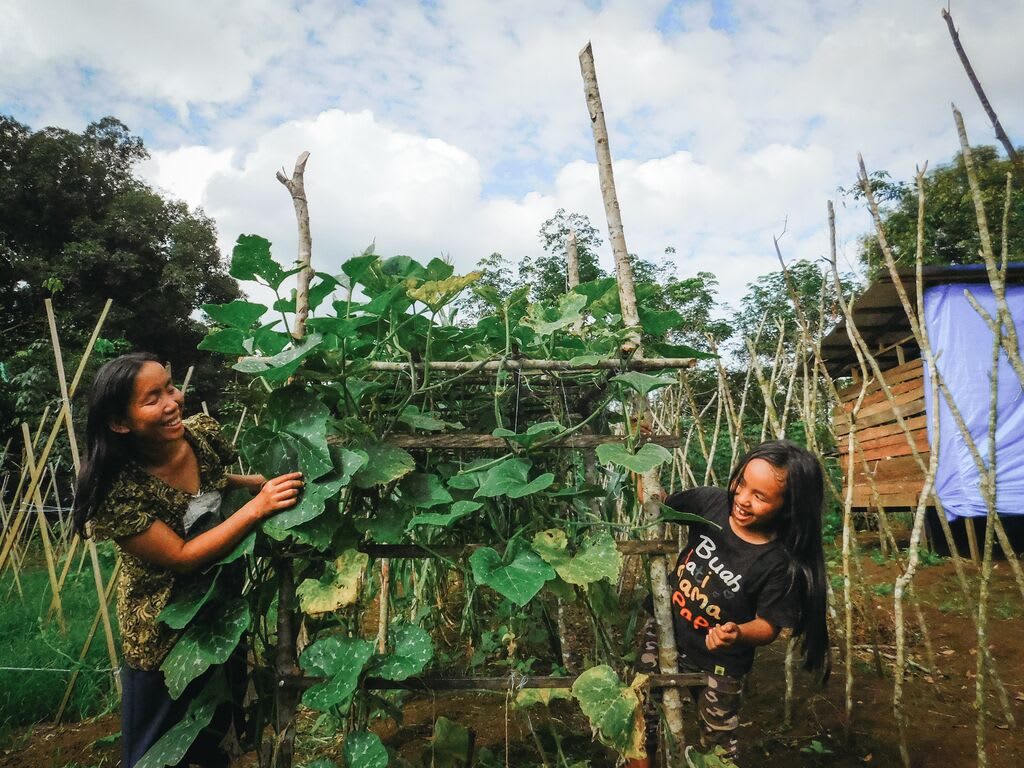
Meisy and her mom, Lusiana, working in their bean garden.
“We offered the program only for those who are willing to participate and able to manage it by themselves. We encouraged families to think about food sustainability for their children, especially in this pandemic condition,” says Eka, the director of Meisy’s Compassion centre.
“I joined the program because of COVID-19 restrictions,” says Lusiana, Meisy’s mother. “I can’t go to the market every day to sell my vegetables. I don’t have money to buy vegetable seeds. I’m glad that Compassion centre can provide the seeds so I can plant more vegetables.”
“O-fish-ally” in business
After gaining confidence through vegetable farming, Meisy’s family decided to try something they had never tried before: fish farming. Along with 100 other caregivers, the family received 20 catfish eggs, a kilogram of fish food and tarpaulin to create a pond.
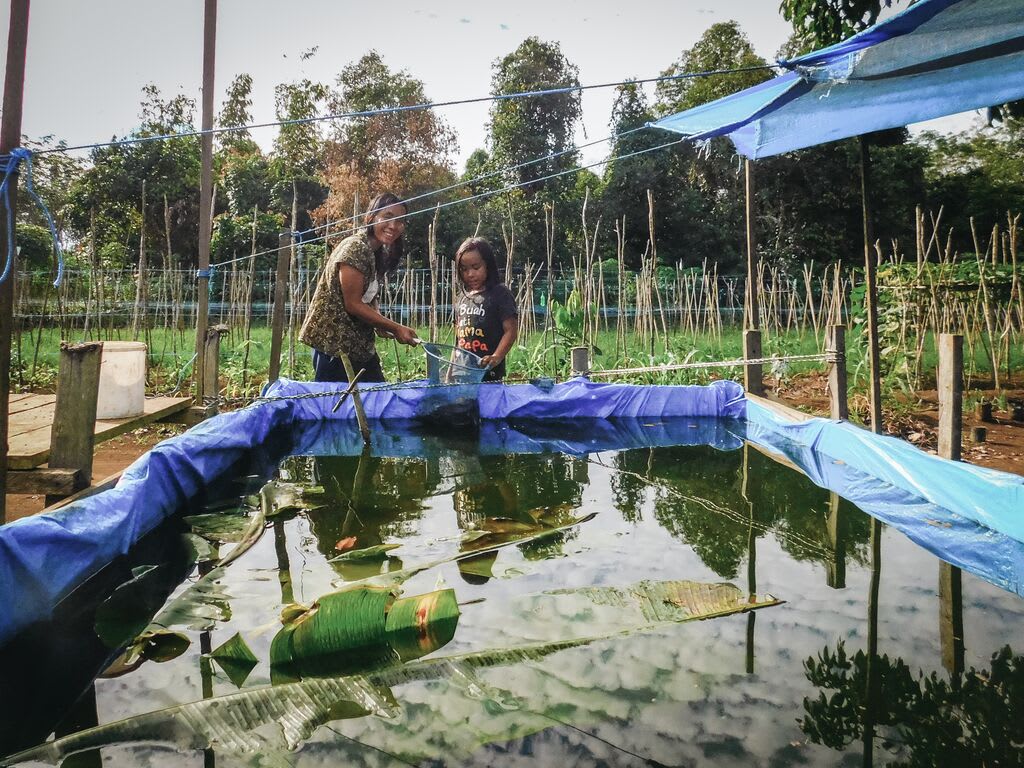
Three metres long and 100 cm deep, Meisy’s family filled the pool with water from the nearest river. To prevent the fish from dying from direct sunlight exposure, Lusiana covered the pond with banana leaves.
“When I am done feeding the fishes, I help my mother by watering the vegetables,” Meisy says.
Both farming activities keep Meisy busy and entertained while she studies at home. “My sister and I love to catch the fish with a fishing net,” she says. “I like to watch the fishes growing up from small to big in size.”
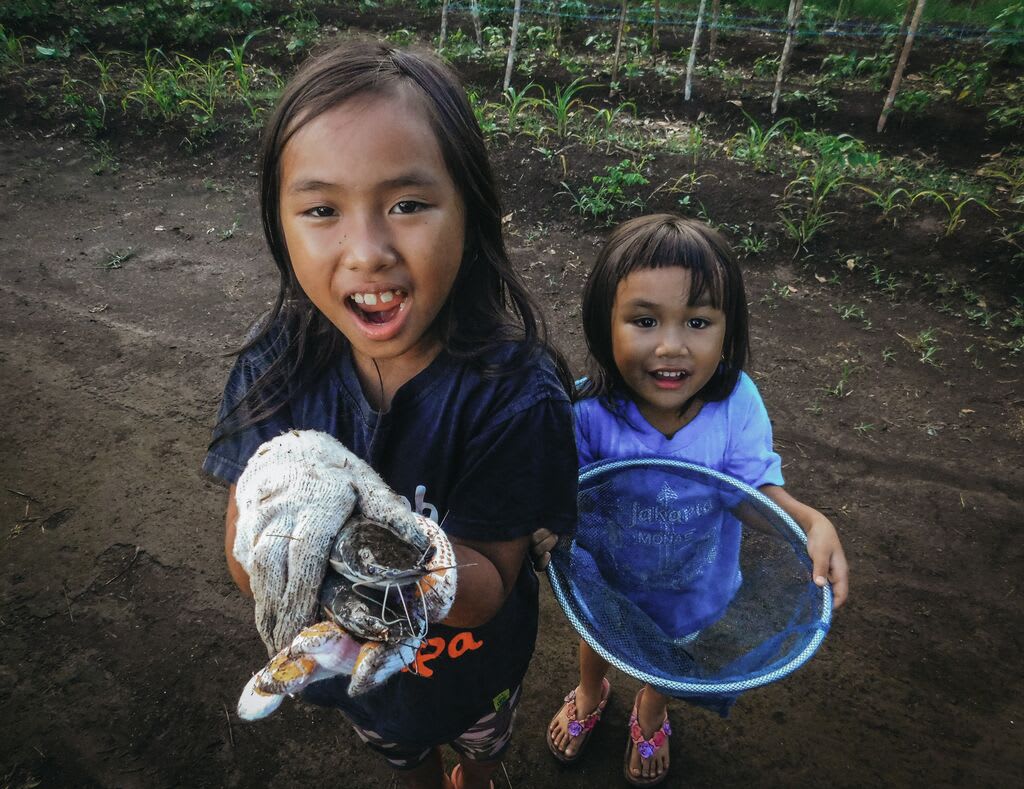
Meisy and her little sister, Felitha, love catching fish in their nets.
An ongoing food supply—in their own backyard
After three months, Meisy and her family were ecstatic to catch four fish from the pond, frying them to eat! It was their first fish haul and a strange experience for the young fish farmer. “I felt weird when my mother took four fishes from the pond and fried them for us to eat. But I know we need them as food too,” Meisy says.
Besides the fish, the vegetable farming initiative means the family has a broader variety of vegetables to eat, including beans, tomatoes and water spinach. Lusiana and Meisy will replace these vegetables with spinach, cassava and chilli when they harvest them in three months.
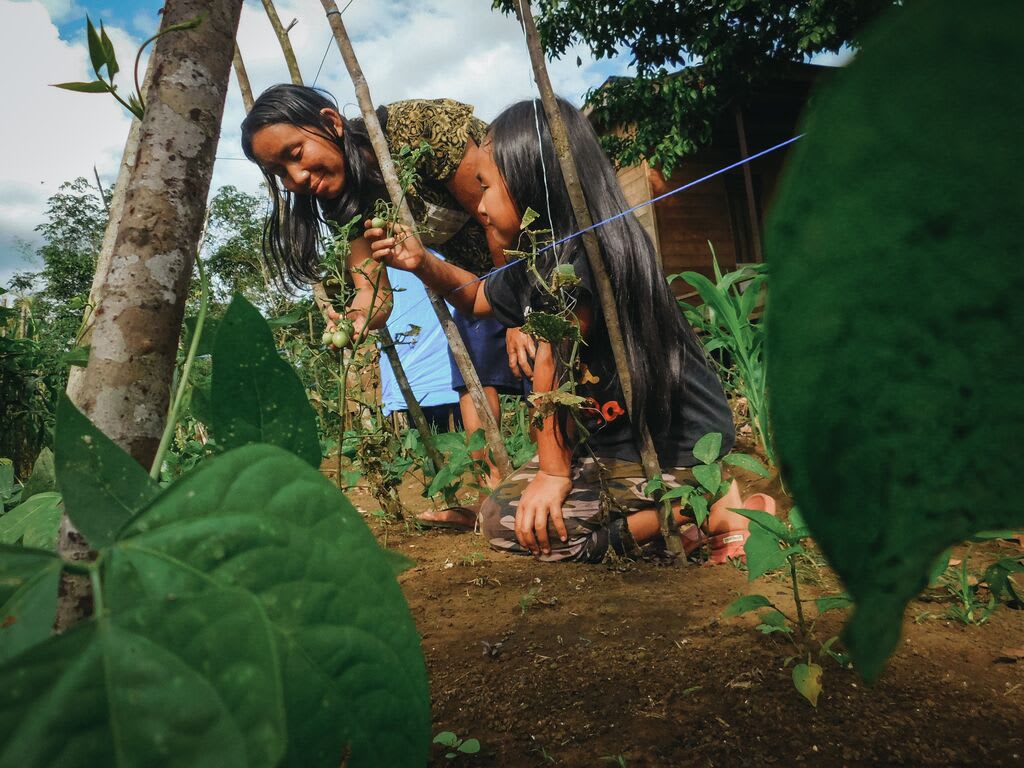
Lusiana and Meisy pick tomatoes from their backyard garden.
“Every day, I can take vegetables from my yard. If the situation is good, I can go to the market and sell the vegetables. When I received the vegetable seeds and fish eggs, I became optimistic that my family would not run out of food,” says Lusiana.
“Now I don’t need to worry about what my family will eat tomorrow. I have vegetables and a fishpond beside my house, and I can take the vegetables and the fish and serve them to my family. I can sell them for money, too.”
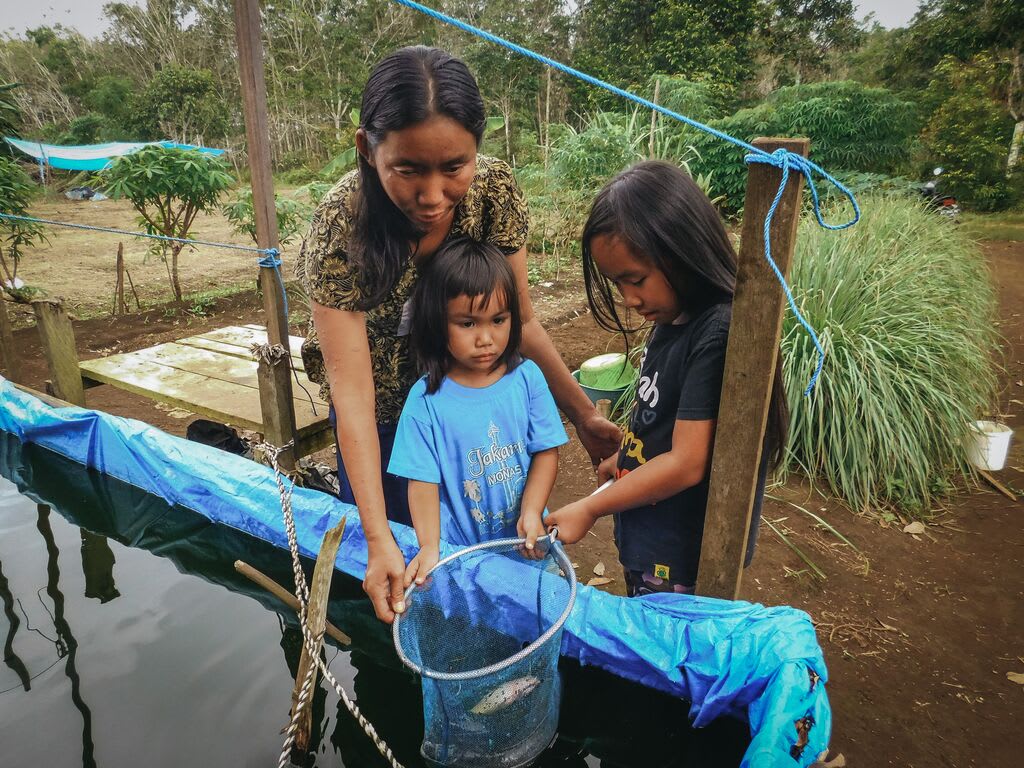
Since the launch of their farming initiatives, Compassion centre director, Eka, is excited to report the initiatives have been a great success among supported families!
“We are excited to support the families to be independent and sustain their food sources, and to make money from their farming. We will evaluate this program and continue our support for the families,” she says.
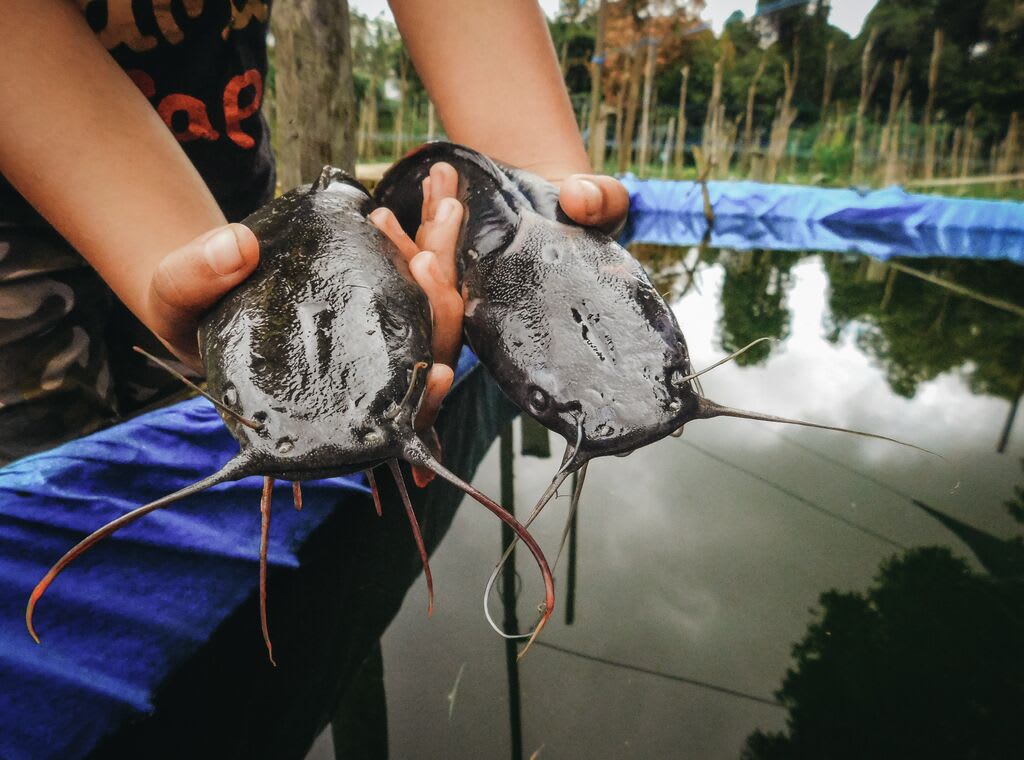
Today, Meisy and her family plan to let the remaining fish spawn to produce more fish, which they hope they can sell to earn additional income. The success of Meisy and her family is made possible by the support of Compassion sponsors.
“I’m not only optimistic about what my family will eat, but I am also sure about my child’s future as well because she is registered at the Compassion centre,” says Lusiana. “It is because she received lots of knowledge and her character is formed well.”
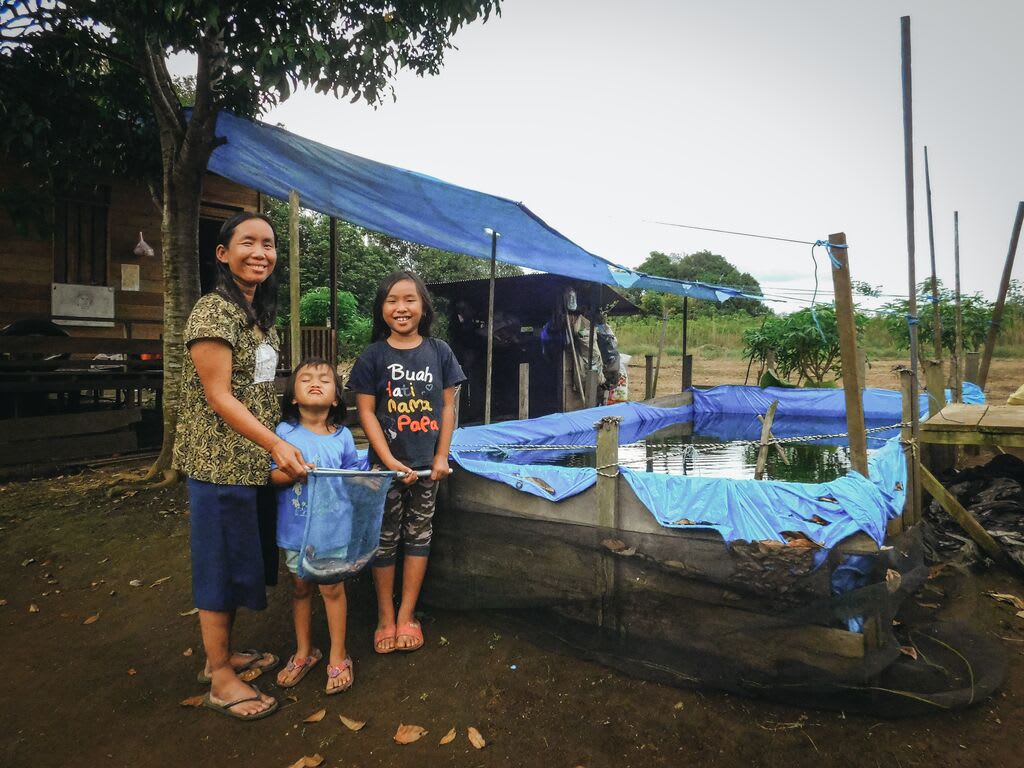
This World Food Day, you can provide much-needed food to families living in poverty.
Field reporting and photos by Vera Aurima.


